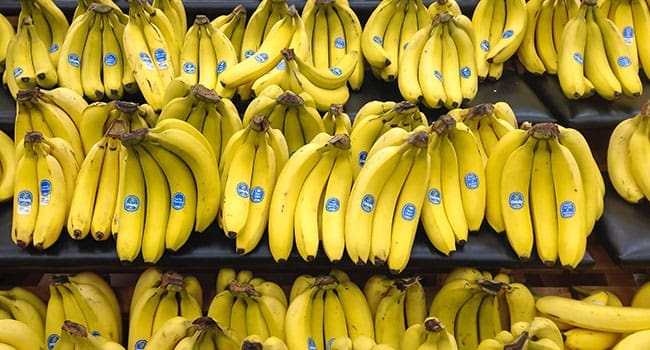 The United Kingdom is inching closer to the end of its transition period between leaving the European Union and officially dropping its trading relationship with the remaining 27 member states.
The United Kingdom is inching closer to the end of its transition period between leaving the European Union and officially dropping its trading relationship with the remaining 27 member states.
As of Jan. 1, the U.K. will make its way in the world on its own, trading off the back of entirely new deals already made or being negotiated.
Talks with the European Union have been going on for years, with no end in sight. As EU leaders continue to insist on de facto non-compete clauses with the U.K., stopping the British from offering better deals than their European counterparts to the rest of the world, Prime Minister Boris Johnson warned British businesses to prepare for the dreaded “No deal” scenario.
Johnson has warned the EU that he’s willing to walk away and implement an Australian-style trade deal that simply follows the rules of the World Trade Organization.
For those who have watched European bureaucrats insist on crippling and unreasonable conditions during the years-long trade negotiations, it’s perhaps not surprising that discussions have been difficult.
And for those who are familiar with the kind of bonkers trade regulations put in place by the European Union’s vast bureaucracy, it will come as no surprise that the U.K. doesn’t want to become a vassal state abiding by EU regulations for the sake of negligible trade benefits.
Regulatory barriers to free trade and counter-intuitive rules were a key part of the U.K. referendum campaign to leave the European Union. Perhaps the most famous was the bendy banana scandal. It’s a story dismissed as fake news by pro-Remain activists, but one that’s there for everyone to see in black and white.
There are regulated standards for bananas sold in the European Union. Beyond ensuring that bananas weren’t affected by rotting or bruising, they lay out a minimum size and length of bananas that can be sold, and requires that the fruits have no “abnormal curvature.”
Pro-Remain activists sneer at those who call the regulation nonsense. They note that there’s no written definition of what’s considered “abnormal curvature.” But that only highlights the absurdity of the rule.
If there’s no guidance, what’s the point of the rule? If a banana is too curved or not curved enough, should it not be sold? For a world that’s more concerned about food waste than ever, does this make sense?
Similarly, a 2011 EU directive said that bottled water companies couldn’t claim on the labels of their products that drinking water helps prevent dehydration. It took a team of scientists from the European Food Safety Authority Panel on Dietetic Products, Nutrition and Allergies to conclude that drinking water doesn’t prevent dehydration if other factors – like being in the sun too long – are taken into consideration. Was this a good use of time and taxpayers’ money?
Outrage over the directive, and the fact it was ever established, was once again mocked by EU advocates. They claimed it wasn’t really a rule, as member states were free to interpret it how they wish. So what was the point?
In the few short years since Canada established its free-trade agreement with the EU, similarly nonsensical regulatory barriers have stood in the way of businesses trading internationally. EU exports to Canada rose by 11 percent in 2018 over 2017, but agricultural exports from Canada to the EU fell by 15 percent.
It wouldn’t have happened if it wasn’t for the EU’s regulatory standards that banned the use of antibiotics, and a rule that said Canadian farmers must have their methods analyzed and endorsed by veterinarians in Canada who are certified by the EU.
It would be wise to remember the regulatory headaches that come with doing deals with the continental trading bloc. Doing a deal with the EU means accepting complex and often unnecessary rules dreamed up by bureaucrats trying to look busy.
If Johnson comes to a last-minute deal with the EU, it will be a miracle – and possibly not the best idea.
Jack Buckby is a research associate with the Frontier Centre for Public Policy.
Jack is a Troy Media contributor. Why aren’t you?
For interview requests, click here. You must be a Troy Media Marketplace media subscriber to access our Sourcebook.
The views, opinions and positions expressed by columnists and contributors are the author’s alone. They do not inherently or expressly reflect the views, opinions and/or positions of our publication.


